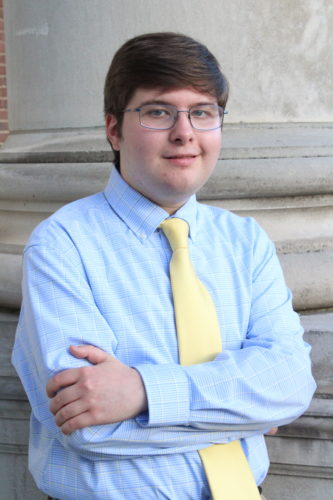Six different leaders from various religious background discussed religious tolerance at Samford University on Sept. 30.
Several Samford student organizations planned the event including College Republicans, Samford Democrats, Samford German Club, Samford Philosophy Club, TAK Religion Honor Society, and Young Americans for Liberty.
According to the Federal Bureau of Investigation, 6,121 hates crimes were committed during 2016. In total, there were 7,615 victims.
Of the 6,121 crimes, 21 percent of these crimes were religiously motivated. Overall, religious-motivated hate crimes have been on rise since 2014.
Ruth Vann Lillian discussed intolerance at the event. Lillian is from the Unitarian Universalist Congregation of Tuscaloosa. According to Lillian, one of the biggest threats from religion is intolerance.
“Any religious teaching which promotes the idea that all other religious teachings are unacceptable and must be eradicated is very dangerous. Our mutual enemy is intolerance,” Lillian said.
One of the other speakers, rabbi Yossi Friedman, weighed in on the meaning of tolerance. Friedman is from the Chabad Jewish Education Center of Alabama.
According to Friedman, the word tolerance has a negative connotation. Rather than tolerance, Friedman said people should strive to love each other. This is ideal but it is ultimately unrealistic.
“The truth is it’s unnatural. It doesn’t make sense to expect that kind relationship with everyone,” he said.
Since this is most likely unattainable, Friedman said tolerance is the next best ideal. According to Friedman, tolerance begins with respect and that people should respect others and their beliefs.
“Tolerance means … even with my firm belief you are wrong, we can still respect each other, get along, and tolerant everything else about each other,” he said.
Respecting different beliefs doesn’t necessarily mean a person has to agree with them, especially concerning religions beliefs.
“Unless you’re Jewish, we have very different opinions as to what makes one a holy person and what makes you a good person,” he said.
Even though many groups disagree about religious beliefs and specifically about what defines a good person, individuals can still learn from these disagreements and these other religions. Friedman encouraged people to not only be tolerant of these differences but study them.
“Find out what the differences are. You can learn a lot from everybody else and more so from those you disagree with,” he said.
Ultimately, Friedman said differences should be celebrated and that God intended for them to exist.
“Learn to love the differences between us. Everyone being the same was never God’s plan,” he said.
Even while respecting difference beliefs, Friedman said a person can still challenge them. However, the Torah instructs that rebuking a belief cannot stem from hate and that challenging beliefs should not cause sin.
Another speaker at the event, Imam Ashfaq Taufique, agreed. Taufique is the president of the Birmingham Islamic Society.
However, Taufique said people must also understand and learn about different religions. People must understand why some people value faith and others turn away from it.
Despite religious differences, Taufique said in Islam all religions, faiths, and people are part of the ummah, or the Muslim community.
“The Muslims are not just part of the ummah but the Christians, Jews, disbelievers, and the people that are pagans are also part of that nation,” he said. “Christians and Jews have special reverence and a special status in Islam.”
According to Taufique, Muslims have an obligations to protect all faiths no matter the differences.
“Our responsibility is protect the houses of God, not only mosques but houses of God in general,” he said.

William is our News Editor. He is a Journalism & Mass Communications major from Birmingham, Alabama.




